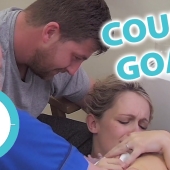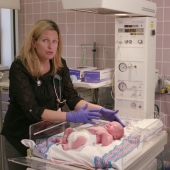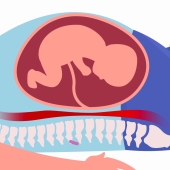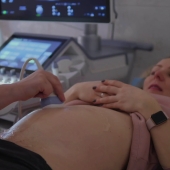So, what do you do when your water breaks? First of all, it's not like it is in the movies. You don't need to panic. Sometimes, the water breaks and it's a big gush. Other times, you'll just have a trickle of fluid. There are some important things to look for when your water breaks. You can use the word "taco" to help you remember these things. Time, so what time did your water break? What time of the day or night was it. Amount, was it a big gush, or was it a little trickle of fluid?
The color, what color was the fluid? Was it clear or slightly blood tinged? Or, perhaps it looked like pea soup. If it looked like pea soup, that can be an indication that there's meconium present. Meconium is your baby's first poop, basically, your baby's first bowel movement. So, if meconium is present, this is an opportunity for you to call your care provider and let them know. It doesn't always mean that your baby is in stress, but it's an important piece of information for your care provider to know.
And lastly, the odor. So, is there a strong odor or scent to the amniotic fluid? If so, this may also be an indication that meconium is present. More likely than not, you would see the color as pea soup-like and that would be your main indication that meconium is present.
So, if your water breaks and your body hasn't started labor yet, there are some things to keep in mind. One, you want to look at the color and odor and see if meconium is present. If meconium is present, call your care provider and work with your care provider to make a decision about the best time to go into the hospital. The other thing to consider is your GBS status. Have you tested positive or negative for group B strep?
If you've tested negative for group B strep, then you have a little bit more time before you have to go to the hospital. If your water has broken and your labor has not started and you are positive for group B strep, you should call your care provider right away and go to the hospital so you can begin the antibiotic treatment for group B strep.
There are many different ways to bring on labor after your water has broken and natural methods of induction and medical methods of induction as well. Speak to your care provider or your child birth educator to find out more information about these.
- 6791 views













